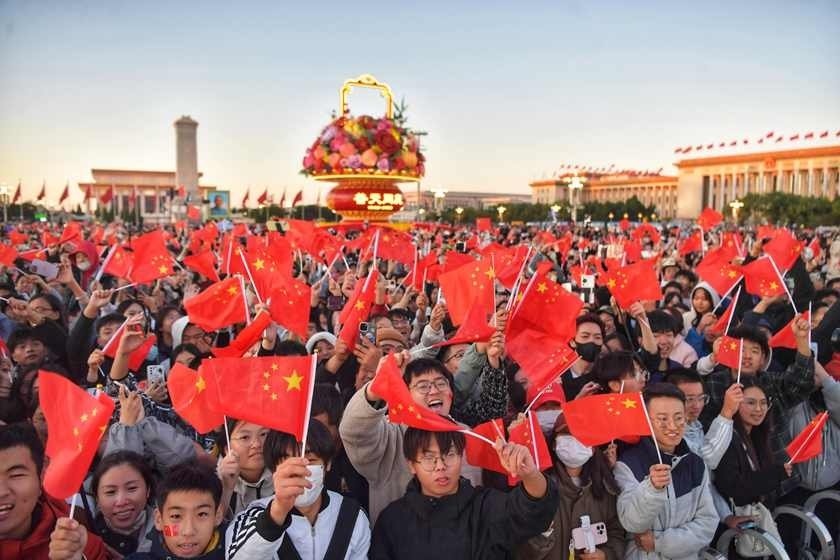Golden Week is one of the major holiday periods in China, celebrated twice each year. The first of these, the Chinese New Year (Spring Festival) holiday, takes place in February, while the most well-known and longest National Day Holiday is celebrated between 1-7 October. Golden Week refers to the extended holiday period of National Day, which was held on 1 October 1949 to commemorate the anniversary of the founding of the Peoples Republic of China, and is a period of mass travel and economic revival throughout the country. Celebrated annually from 1 to 7 October, this holiday stands out as an important period that contributes to consumption and economic growth, as well as the domestic tourism boom in China.

In 2024, 765 million domestic trips were made across China during this week, representing an increase of 5.9% over the previous year. Tourist spending also increased by 6.3 per cent to 700.8 billion yuan. These figures demonstrate not only the post-pandemic recovery, but also the strong momentum of tourism, surpassing pre-2019 levels. The most popular destinations during the holiday were Beijing, Chengdu, Chongqing and Shanghai. It is seen that Golden Week plays an important role not only in terms of tourism but also in terms of economic growth. The Chinese government’s recent economic stimulus packages and policy measures to boost consumption have greatly supported domestic tourism. The majority of travellers preferred rail and road transport, with rail travel up 8.6% and road travel up 24.8%.
In addition, data from online travel platforms show a huge increase in both domestic and international travel. In particular, reports from platforms such as Ctrip and Tongcheng Travel reveal that the travel spending of people living in smaller cities has increased rapidly, with bookings from these cities rising by more than 50 per cent in one year. This shows that Chinese tourism is not just confined to big cities, but that consumer mobility is increasing in every corner of the country. Experts point out that tourism is a powerful growth engine for the Chinese economy. In the first three quarters of 2024, 4.29 billion domestic tourism trips were made, up 16.8 per cent year-on-year. Expenditures reached 4.32 trillion yuan, reinforcing the impact of domestic tourism on economic growth. This positive economic picture indicates that both consumer confidence and travel habits are improving rapidly and the economy remains buoyant.
Monetary policies implemented by the Chinese Central Bank also had a positive impact on tourism and consumption. Reducing the reserve requirement ratio of banks and injecting liquidity into the market increased the spending capacity of consumers and supported economic activity during this holiday period. Golden Week is not only a holiday period in China, but also an important period that demonstrates the strength of the country’s economy and the vitality of tourism. The increase in both domestic tourism and foreign travel is one of the important indicators supporting China’s economic growth potential. With policy support and economic recovery, China is likely to continue its strong growth in tourism in the coming years.





